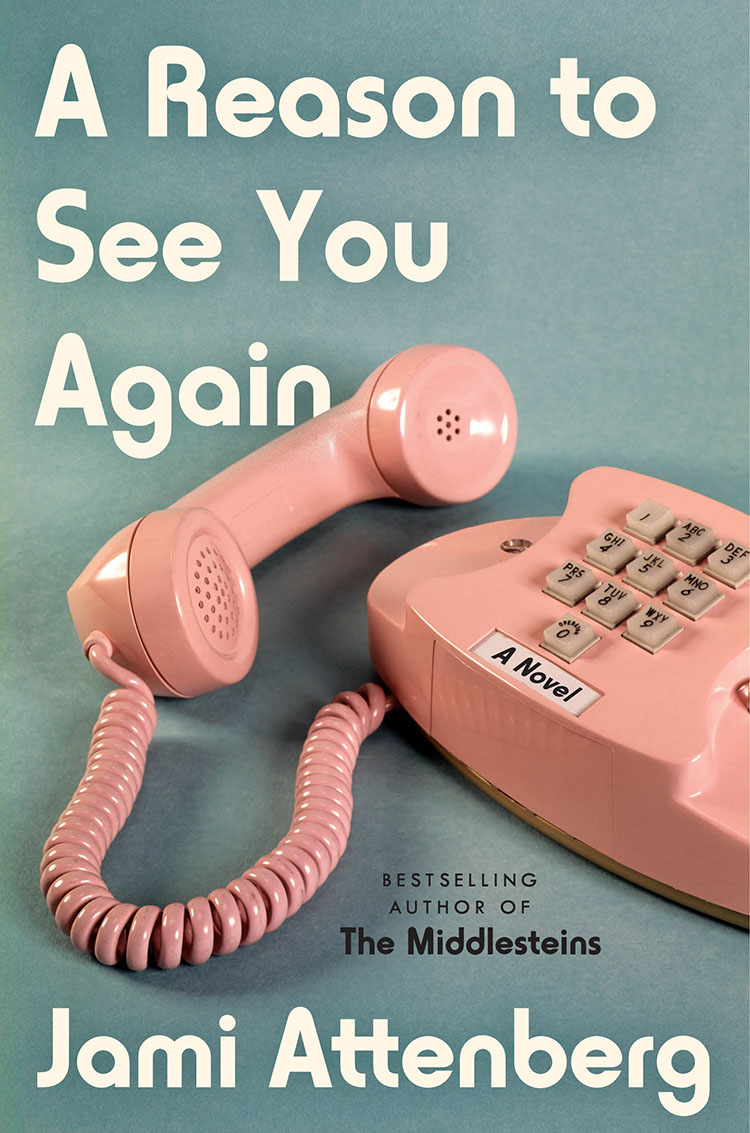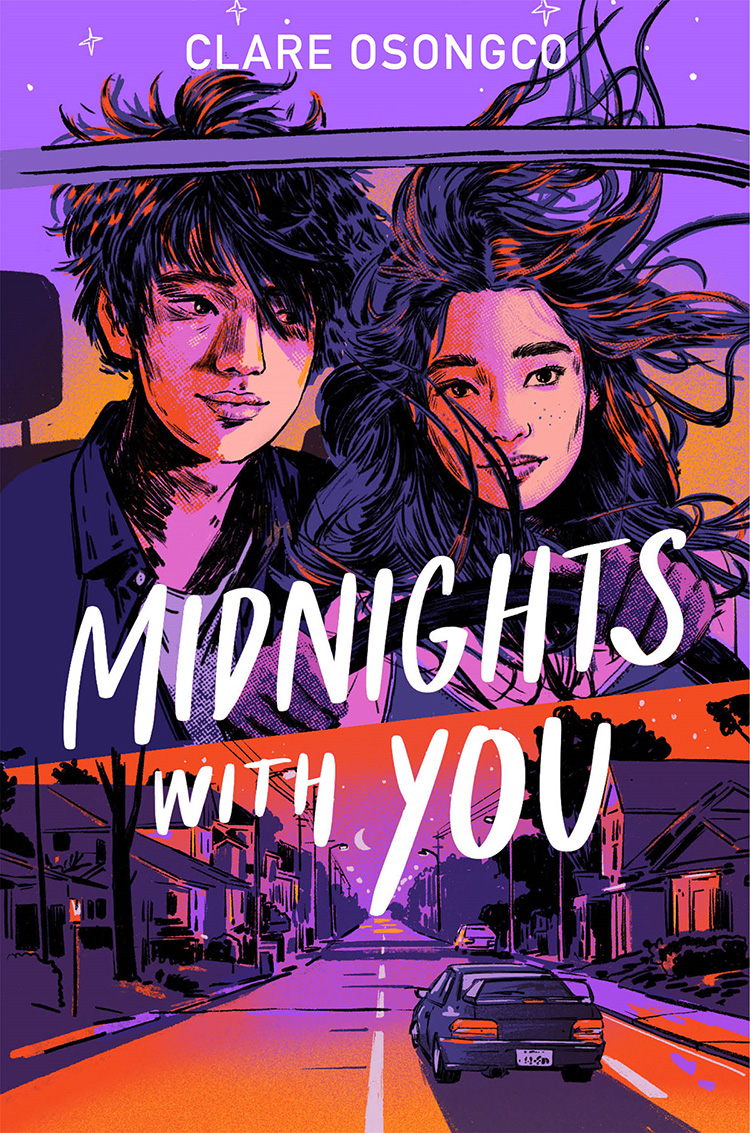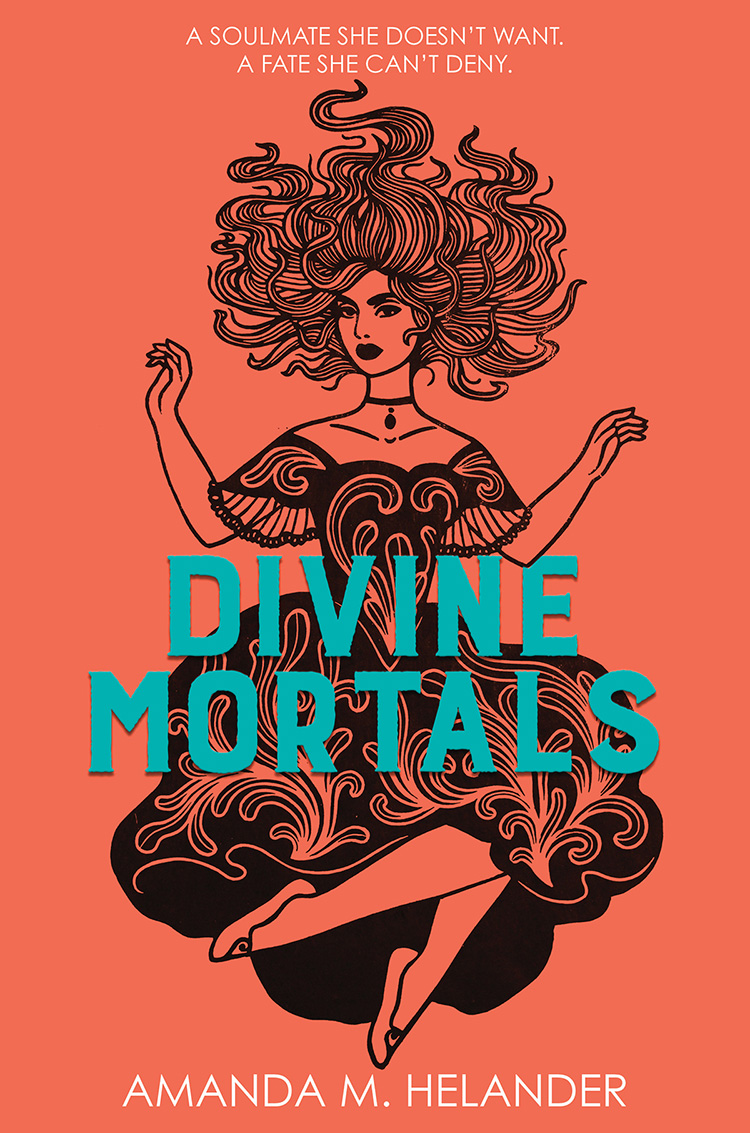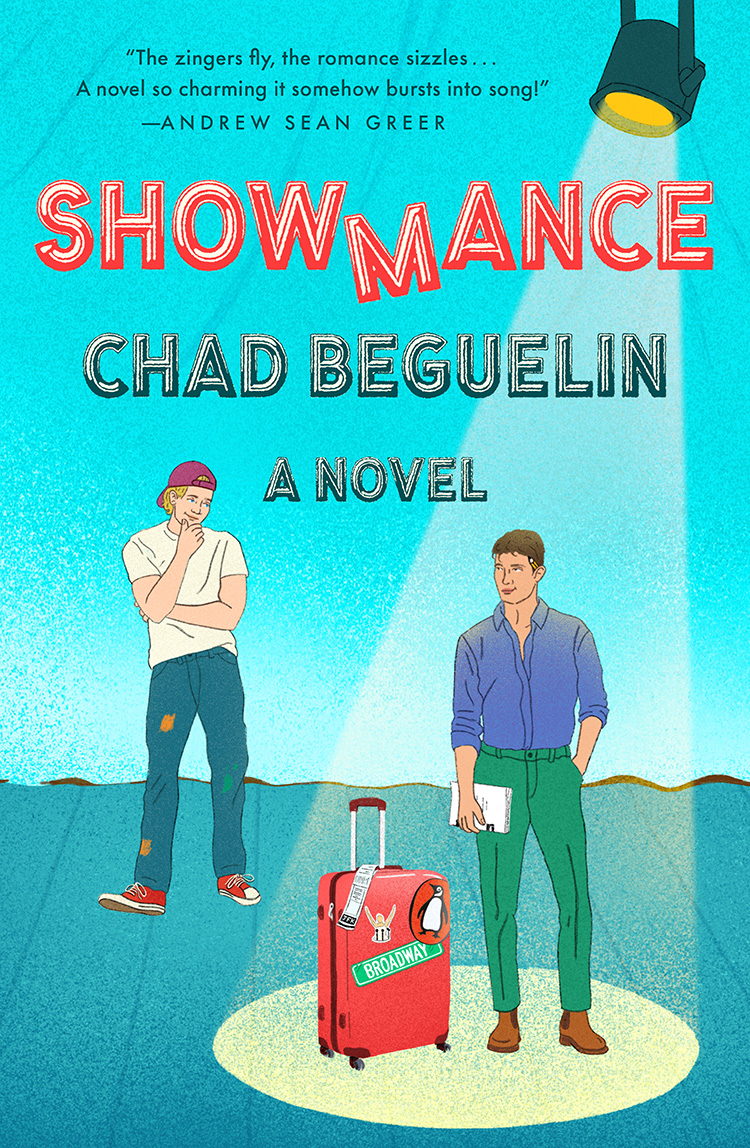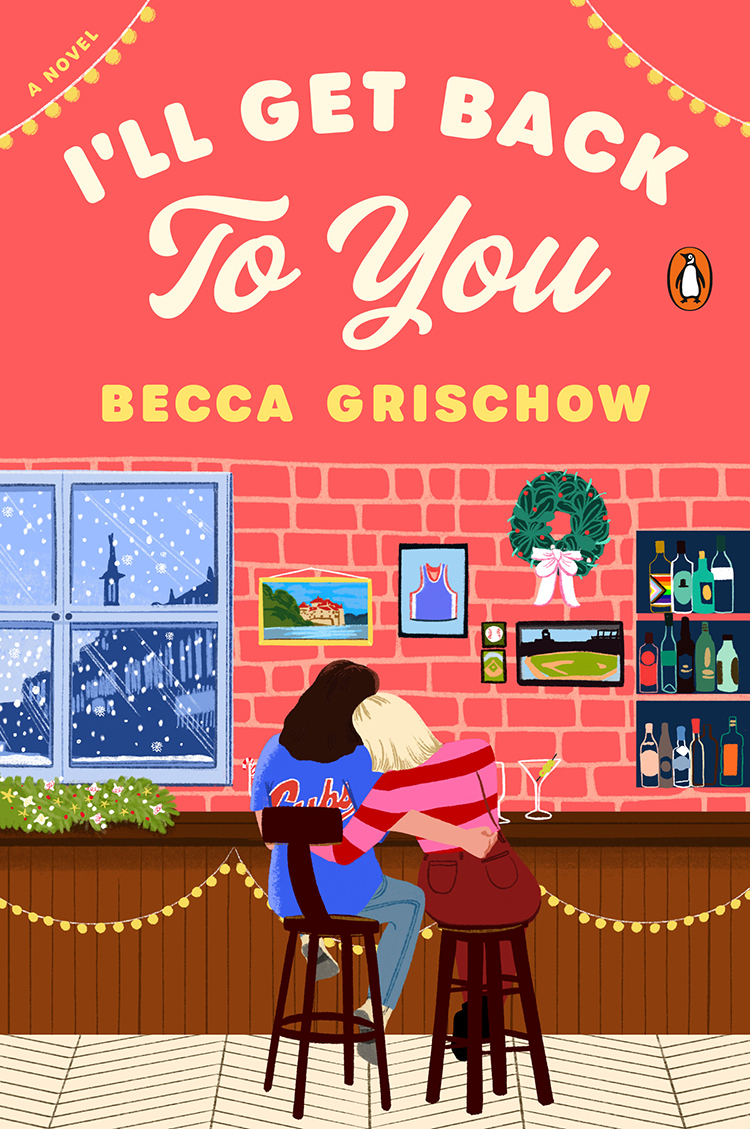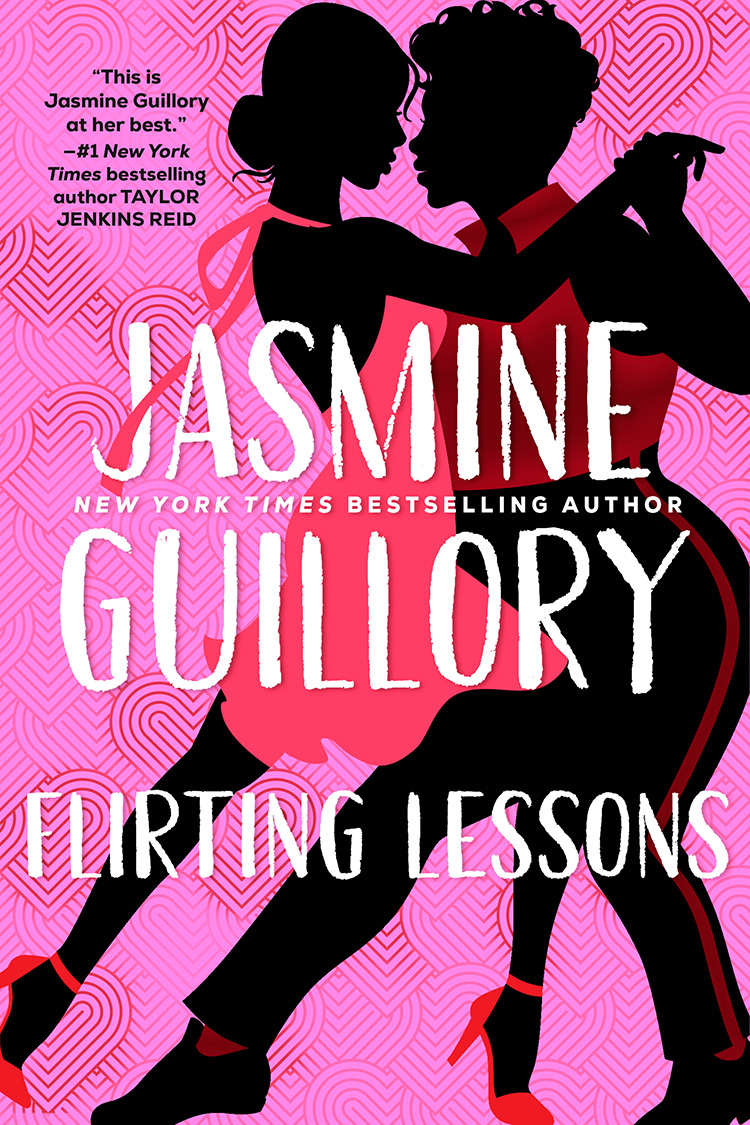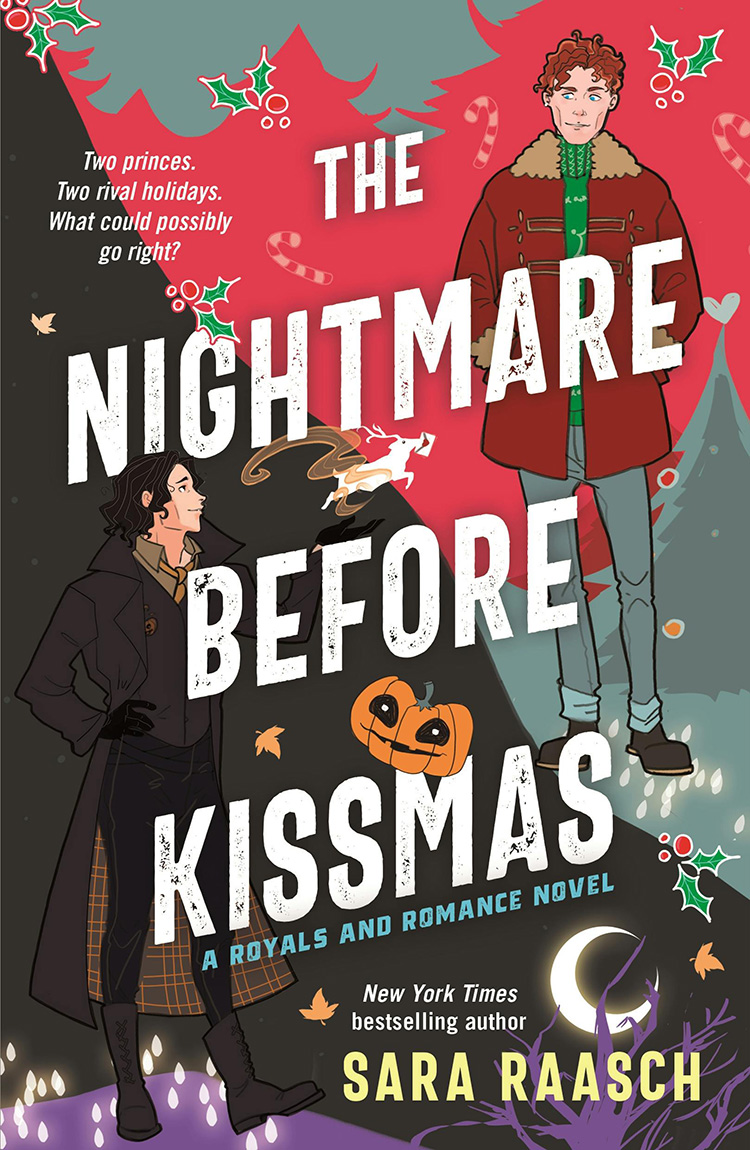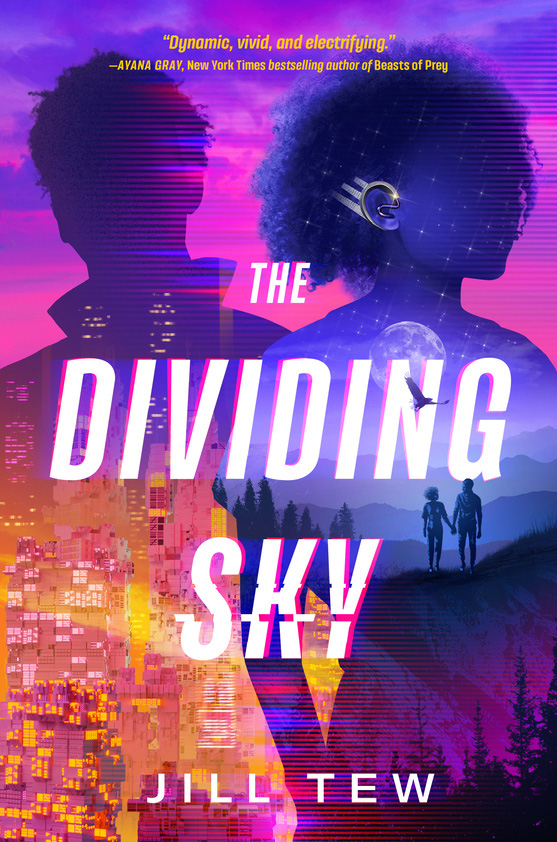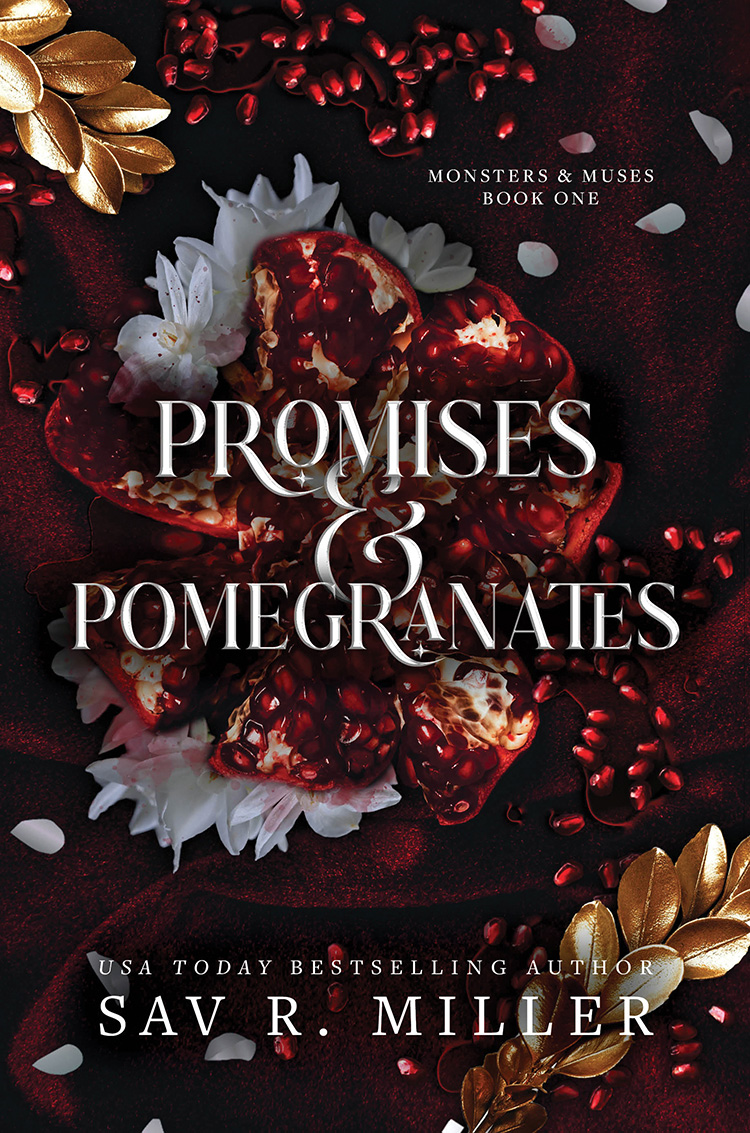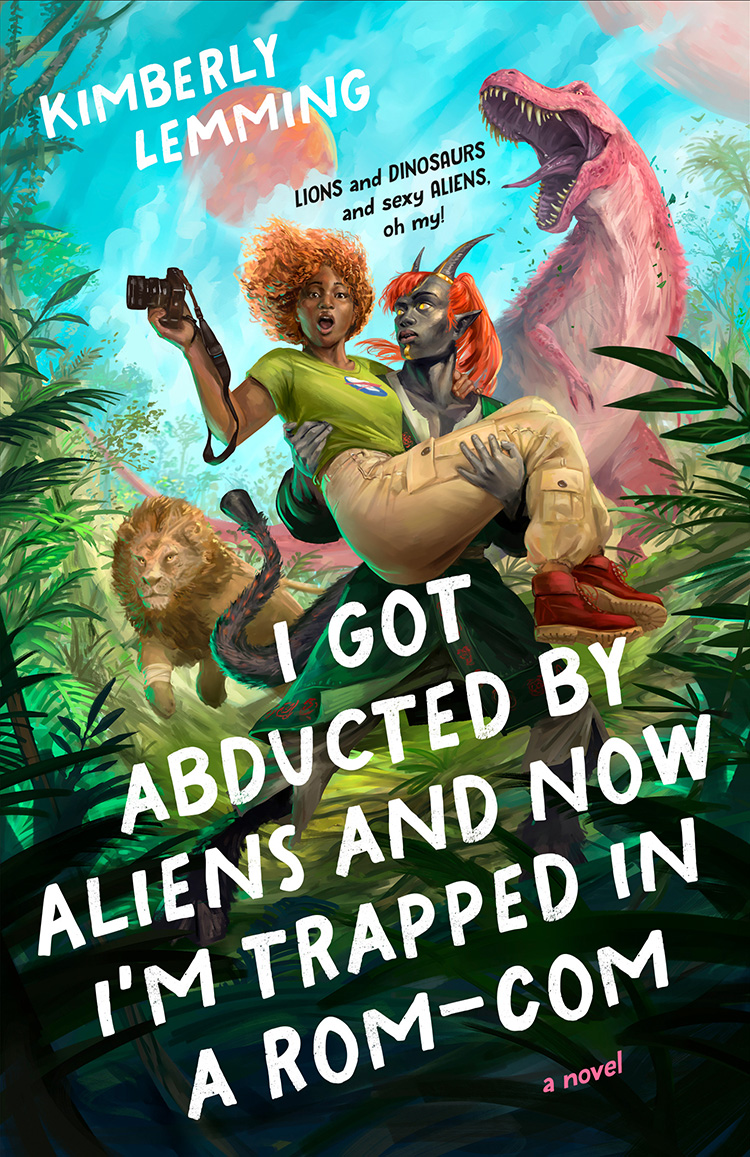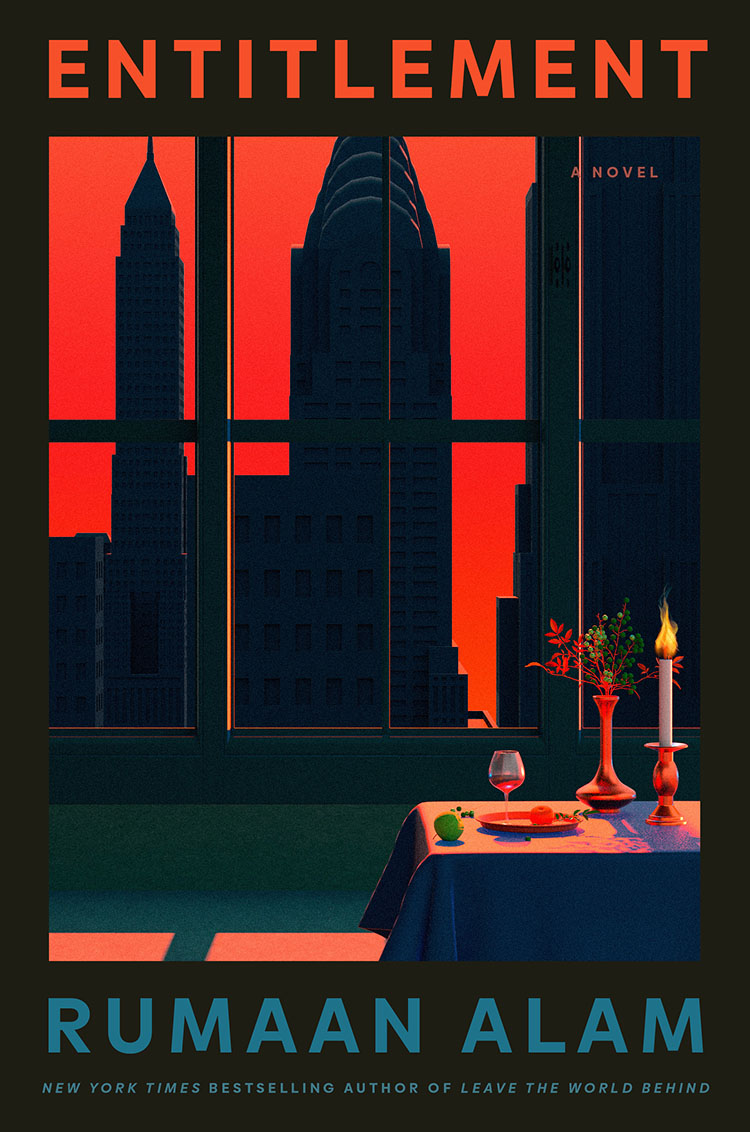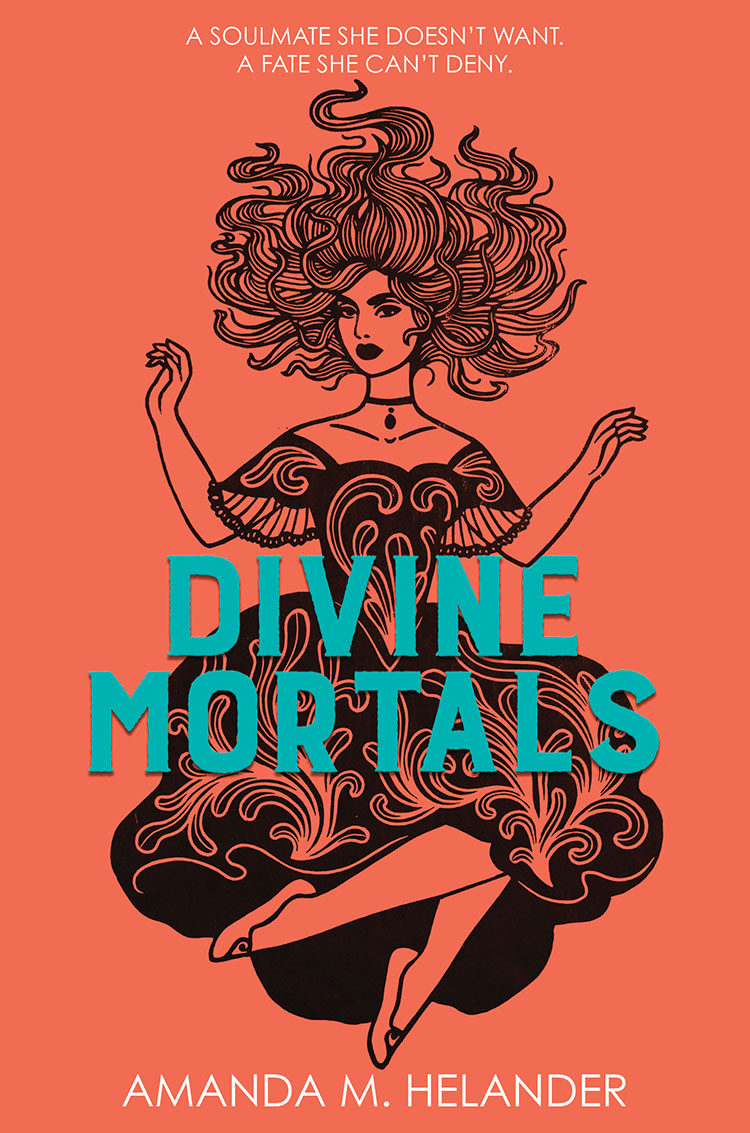
A Desperate Fortune
Pub: April 7, 2015
Sourcebooks Landmark
Pre-OrderFor nearly 300 years, the mysterious journal of Jacobite exile Mary Dundas has lain unread—its secrets safe from prying eyes. Now, amateur codebreaker Sara Thomas has been hired by a once-famous historian to crack the journal’s cipher.
But when she arrives in Paris, Sara finds herself besieged by complications from all sides: the journal’s reclusive owner, her charming Parisian neighbor, and Mary, whose journal doesn’t hold the secrets Sara expects. As Mary’s tale grows more and more dire, Sara, too, must carefully choose whom to trust…and whom to fear.
Chapter One
My cousin didn’t try to catch the bride’s bouquet. She knew me well enough to know I wouldn’t try to catch it, either.
“Come keep me company,” she said, and drew me firmly to one side of all the colorful commotion. “I need to sit.”
My father’s wild Aunt Lucy, nearly lost in layered flounces of bronze taffeta, tried once to herd us back as we went past. “Oh, girls, you mustn’t run away. Go on, get in there. Have a go.” Smiling at my cousin, she said, “Third time lucky, Jacqueline, so they say. And Sara, dear,” she added in a cheering tone, to me, “there’s always hope.”
I might have pointed out there wasn’t, really. Catching things had never been my strong suit, and it always seemed ridiculous to go through all that effort just to field a bunch of flowers that, while pretty, only showed which of the women at the wedding was the most determined to be married next, not which one would be.
Jacqui didn’t give me time to point out anything. She simply answered, “Yes, Aunt Lucy, thanks for that, but Sara isn’t feeling well.”
And then she steered me off again.
I looked at her. “I’m feeling fine.”
“I had to give her some excuse, or she’d have never let us be. You know the way she is. And I could hardly say I wasn’t feeling well—she’d only think that I was pregnant.”
I had to admit that was true. Jacqui’s love life—including her two short-lived marriages, one to a singer flamboyant enough to ensure their divorce had been given a place in the tabloids—was frequently a source of gossip at these family gatherings. She fueled that gossip on her own sometimes when she got bored, and had been known to start a rumor in one corner of the room to see how long it took to travel to another, but this evening she did not seem bored.
I asked, because I couldn’t see the man she’d come with, “Where did you leave Humphrey?”
“Over there. He found the punch bowl, I’m afraid, before I had a chance to warn him. Drank three glasses of it.”
Uncle Gordon spiked the punch at every family wedding. No one knew with what, but even those of us who’d only ever heard about the hangovers knew better than to drink the stuff. “Poor Humphrey.”
Jacqui sighed. “Poor me, more like. I doubt he’ll make it into work on Monday, and we’ve got a sales meeting. That’s what I get,” she said, “for bringing my assistant to a Thomas family wedding.”
I agreed she should have known better. I hadn’t brought a date myself, but then I didn’t have a Humphrey, clever and good-looking, sitting handily outside my office door. And no one here expected me to bring somebody, anyway.
“Let’s find a table,” Jacqui said.
We found one tucked quietly off in a corner, half-hidden by one of the faux-marble columns that held up the wedding hall’s high ceiling, painted ethereal blue with winged cherubs. The whole setting was a bit over-the-top, but it suited our young cousin Daphne, whose wedding this was. Daphne lived and breathed drama, which made her quite fun in small doses but very exhausting in larger ones.
“All a bit much?” Jacqui asked me. At first I assumed she was thinking, as I was, about the wedding, but then she asked, “How are you coping?” and I understood.
She had always been something of my guardian angel, since I’d been put into her arms as a baby when she had been ten. She was, if one worked out the family tree, more properly my father’s cousin, daughter of his youngest uncle, but that made her still my own first cousin once removed, and I had claimed her and was keeping her.
It had been Jacqui who’d first noticed something was a little different in the way I saw the world, and through my childhood and my teens she’d been close by to show me what to do, like an interpreter to guide me through the labyrinth; to pick me up and dust me off if I stepped off the path and took a tumble. And the first year I had spent at university, that awful year when things had started coming all unglued for me, it had been Jacqui who had taken me to lunch with a new author, whose first book she had been editing.
“He’s a psychologist,” she’d introduced him. “Brilliant book, just fascinating. All about these children who have—how do you pronounce it, Colin?”
“Asperger’s.” He’d said it with a hard g, as in hamburgers.
At Jacqui’s prompting, he had talked all through our lunch about the syndrome that at that time was believed to lie midway along the sliding scale between the “normal” world and full-on autism, making those who had it all too miserably aware that they were different without understanding why, unable to read and interpret all the complex social cues most other people took for granted—tones of voice, and body language, and the strange figures of speech that made a person say that he had been “knocked sideways” when he hadn’t moved at all.
And I had known.
It had, if I was honest, been a great relief to finally put a name to what the issue was. I’d gone for consultations later with that same psychologist, and with my cousin waiting just outside his office door, we’d done the proper tests. He had explained it very clearly, using terms I could relate to.
“You’re a programmer, aren’t you?” he’d asked me. “You work with computers. Well, if you think of your own mind as a computer, which it is, then your basic architecture is different from most of the other computers around you. You’re wired differently, you connect differently, and you run different software on a different operating system. You’re like the lone Mac,” he’d concluded, “in an office of PCs. They’re all running Windows, and you’re running OS X.”
That had helped. I’d been able to picture that one Mac computer alone on its desk with its own software, processing everything in its own way while all of the other computers, the PCs, shared their incompatible system.
But Jacqui hadn’t liked that image. “You don’t want to be alone, off in your own corner,” she had told me in decided tones. And having helped me put a name to what the problem was, she’d tackled it the way she tackled everything: head on. She’d bought me books and studied on her own, and with a single-minded focus Henry Higgins might have envied, she had tutored me in how to hide the signs, to pass for normal.
“You just have to pretend,” she’d said, choosing another analogy, “that you’re an alien, come here to learn about earthlings. Our language, our customs, our idioms, all of that. Study and learn them, the way you would any strange culture. But you don’t want to look like an alien, and that means learning to mimic. I’ll show you.”
She’d shown me. Most days, I still felt like an alien, if I was honest. But Jacqui had done her job so well these past several years that my own parents, even when faced with the facts, still refused to believe I was anything more than a little bit quirky. And in a family like mine, I thought—bringing my mind firmly back to the present as new bursts of clapping amid shrieks of laughter announced that somebody had caught the bouquet—being quirky was hardly unusual.
“How are you coping?” asked Jacqui again, and I shrugged.
“I’m all right. I could have done without the DJ.”
“Yes, well, so could we all. It was too loud for me,” she admitted, “so I can only imagine what it must have been like for you.”
My senses were…sensitive. Easily jangled and jarred. The wiring of my mind made sounds that other people could ignore strike at me with the full force of a whining dentist’s drill. Strong lighting sometimes gave me headaches, certain fabrics rubbed as painfully as sandpaper against my skin, and when all that was added to a room packed full of people, interacting in a way I had to work to understand, then staying calm became a test of my endurance.
Jacqui smiled and took a piece of paper from her handbag. “Here,” she said, and slid the paper over to me. “This might help.”
Shaking my head, I assured her, “I’m not at that stage yet.”
“What stage?”
“The Sudoku stage.” Then, because she was still watching me with that expression I’d known from my childhood, I added more firmly, “I’m fine.”
I admittedly found it a little endearing that she’d always fed my addiction to numbers, in full understanding that, when I felt overwhelmed, nothing could calm me like complex equations or, lately, Sudoku—the neat, tidy patterns of numbers in squares, like a warm, fuzzy blanket that wrapped round my mind and was instantly soothing.
It hadn’t surprised me that Jacqui had noticed when I’d made the switch to Sudoku. There wasn’t much Jacqui missed noticing. And for the past several months she had seemed to have one of the puzzles conveniently tucked in her handbag whenever I’d needed one. But…
“You can stop looking after me,” I told her. “Honestly. I’m a big girl now.”
“I know that.” Her tone told me nothing, but I’d learned that whenever her mouth tightened down at the corners like that, she was being defensive. “And anyway, that’s not a puzzle, exactly.”
I looked at the page. She was right. These were numbers, but not in an order I recognized—just numbers printed in pairs and threes, with dots between them:
106.62.181.189.68.172.766.86.128.185.64.175.19
.67.164.186.65.47.679.55.173.25.122.13.64.562.215.128.196.29.56.63
I was already starting to look for the patterns when I asked, “What’s this?”
“It’s a code. Codes were one of your things, weren’t they?”
“When I was ten, sure.” I’d been in Year Six then. Our studies had taken us through World War II and the work of the code breakers at Bletchley Park, and I’d been so obsessed with cryptanalysis that, for the whole remainder of that winter, I had written all my school notes in a cipher of my own devising, much to the frustration of my teachers and my parents. “But that was almost twenty years ago.”
“Well, I’ll lay odds you’ve not forgotten. That code,” she said, with a nod towards the paper I was holding, “is an old one, from the early eighteenth century.”
It wasn’t actually a code, I could have told her, but a cipher. More specifically, it seemed to be a substitution cipher, in which numbers had been used in place of letters of the alphabet. But I only asked, “And why do you have it?”
“I got it from one of my authors. You’ve never met Alistair Scott, have you?”
“Who?”
“The historian, Alistair Scott. He’s quite famous. He used to be on television all the time.”
I took her word for it. I didn’t have a television. “And?” I smoothed the paper with my fingers as I focused on the numbers. There weren’t many that were higher than 500, so I guessed those might be placeholders, to mark the ends of words.
“He’s working on a new book,” she went on, “and there’s a source he needs to use, but it’s in code. He wants someone to break it for him. So I thought of you.”
“I’m hardly a professional.”
“You need the work.”
I paused, and faintly smiled. “I wondered how long it would take before you brought that up. Who told you?”
“Need you ask?”
My mother, then. I looked more closely at the numbers, noting the most common ones were in the 60s. Probably the e’s, I thought. The letter used most frequently in English, after all, was e. It also was the letter we used most for ending words. If I was right about the placeholders, then two words in this cipher ended in 60-somethings, so again, they were most likely e’s. I took a pencil from my handbag. “So she’s told you all the details, has she?”
“Only that you handed in your notice,” Jacqui said. “You can’t keep doing that.”
“They wouldn’t let me work alone.”
“Most people in IT do work in teams.”
“I don’t.” And if the 60-somethings were all e’s, that meant it was the 6 alone that mattered, and the final digit didn’t count. Testing this, I tried removing all the final digits right across the board, from all the numbers, and put e’s where all the sixes were, and spaces for the placeholders. I ended up with:
10.e.18.18.e.17.space.8.12.18.e.17.1.e.16.18.e.4.space.5.17.2.12.1.e.space.21.12.19.2.5.e
There, I thought. Much less unwieldy. Right then. Twenty-six letters in the alphabet. Except if I were dealing with a simple substitution cipher, in which a was 1, and b was 2, and so on, then e would be written as 5 and not 6. I flipped e and f round, and got gibberish: Jerreq hlreqaepred fqblae ulsbfe.
Jacqui told me, “It would mean a trip to Paris. You like Paris.”
“In December?”
“Well, you wouldn’t have to go till after Christmas.”
“Even worse.”
She held her silence for a moment, then she said, “You’re right. You’d do much better staying here and moving back in with your parents. That would be a lot more fun.”
I wasn’t always good at detecting sarcasm, but in this instance just the words alone were all I needed to be certain she was teasing. Glancing up, I tried to straighten out my smile. “Ha-ha.”
“No, really. And your mother could invite young men to lunch on Sundays. You could have a lovely time.”
“I won’t need to move home,” I said. “I’ve got three months left on my lease. I’ll find another job.”
“This one would let you work alone. Besides, he pays obscenely well, you know, does Alistair.”
I shook my head. “I couldn’t take his money.” I flipped a few more letters, moving closer to an understanding of the patterns used by whoever had made this cipher. “This,” I said, “is really pretty basic, not so difficult. I’ve nearly got it. When I’ve finished here, I’ll let you have the key, and you can pass it on to him, and he can do all the deciphering himself, for nothing.”
“Yes, well, there’s one problem with your logic,” Jacqui told me.
“What’s that?”
“The code you’ve got there,” she informed me, “is not the one Alistair needs to have broken.”
My pencil paused, but only briefly, because I was too far along to just stop. “Then why do I have it?”
“It’s sort of a test. I told Alistair you were a wizard with codes and things, and he said if you cracked this one in under a week, he would not only hire you, he’d buy you a bottle of whisky.”
I wasn’t sure what letter had been flipped with r. The first word, with its double r, was likely my best clue. It might be meant to be a double l, perhaps, or double t. Since t was the most common English consonant, I went with that. Jetteq, read the first word now, unhelpfully. “He knows what this says, then?”
She nodded. “It’s out of an old book, or something.”
I had only two bits of the cipher left to unravel.
“Tell Alistair Scott,” I said, “that if he’s buying me whisky, my preference is sixteen-year-old Lagavulin.” I jotted the translation down and rotated the paper to slide it back over the table towards her.
I knew that I’d done it correctly when I saw her smile. That was how Jacqui always smiled when I did something to make her proud. “See? I was sure you could do it.”
“I’m not a real code breaker.”
“Sara.” She held up the paper. “You solved this in seventeen minutes. You’re good at it.”
Probably not good enough, said my inner perfectionist.
Jacqui, who’d known me so long and so well that she likely could hear that voice, too, said, “Come with me tomorrow, I’ll take you to meet him.”
“To Paris? Be serious.”
“Alistair Scott’s not in Paris.”
“But you said—”
“He only lives over the river, in Ham. It’s the job that’s in Paris.”
She asked me again to come meet him, and of course I told her yes, because I knew she wouldn’t let it go until I gave the answer that she wanted. But my gaze stayed on the paper in her hand while we were talking, and I wondered who had written it, and whom they’d meant to warn with those four words. Not me, I knew…and yet the final two words resonated, curiously:
Letter intercepted. France unsafe.
Chapter Two
I’d never been to Ham. It lay not all that far from the grand Tudor palace of Hampton Court, but on the opposite shore of the Thames, the south shore, where the river bent round on itself on its lazy way down into London.
We drove down in the early afternoon, and Jacqui used the time to brief me on the things I should avoid in conversation. “And whatever you do, don’t say anything nice about Calum MacCrae.”
“Not a problem. I haven’t a clue who that is.”
“You are joking.” She glanced at me. “Oh, right. You don’t watch television at all, do you? Calum’s a popular history presenter on BBC Four, and a bestselling author besides.”
“So a rival of Alistair Scott’s?”
“More than that. A usurper.” She said the word decidedly. “Alistair was a celebrity once, you understand. The champion of Scotland. He set out to write this tremendous great trilogy, and when the second book came out it struck that magic chord you always hope a book will strike. The stars aligned. The critics loved it, readers too. It hit the charts and stayed there. He was courted by the BBC, their darling boy, presented documentaries for years for them. Whenever they were after someone for a comment about anything to do with Scottish history, it was Alistair they called upon. Then Calum came along, and he was younger, smoother, bolder, with a brand-new book to peddle and a very clever publicist. And before you know it, he’d edged Alistair aside. The BBC stopped calling altogether.”
“That must have been upsetting for him.”
“Not as upsetting as seeing MacCrae’s books sell better than his and win all the awards.”
“Are they better books?”
Jacqui was fair in her judgments. “No. Calum’s all flash and good hair and tight trousers. His books are entertaining, but he’ll be the first to admit that he rarely goes back to the primary sources; he reworks what others have written before him and makes it more colorful, puts his own stamp on it. But because he doesn’t footnote, doesn’t give a bibliography, you have to take his research and the things he says on trust. And that drives Alistair completely mad. Alistair,” she said, “goes deep with his research, leaves no stone unturned, and keeps notes about everything.”
“My kind of man.”
“Yes, I think you’ll get on well. I hope that you do. This is such a huge thing for him, writing this book. For a few years he didn’t write anything, nearly gave up. Now he’s finally committed to writing the last of the trilogy. I think he views this as his chance to win back his crown, in a way.”
I was thinking of that for the rest of our drive into Ham, while I watched the passing sky. I knew that when the sky in mid-December was this clear and blue, it meant the air outside was freezing cold—a lesson Jacqui had apparently absorbed as well, for here, instead of dressing with an eye to fashion as she did in London, she was wrapped up in a warm but shapeless coat that looked about as old as I was, and as we stepped from the car she drew on woolly mittens and a hat.
“He’ll be outdoors,” was her reply when my expression couldn’t hide my curiosity. “He likes to walk, does Alistair. The last time I was here, last month, he had me on the towpath, walking all the way to Kingston. In the rain.”
There was no sign of rain today, and it appeared there were plenty of places for walking right here in the village. We’d parked near the Common, just steps from the start of the long and tree-lined avenue—now only for pedestrians and cyclists—that would have taken us straight to the ancient stately home of Ham House, if my memory of the map I’d looked at earlier this morning was correct. Instead, we turned the other way and crossed the quiet street to where a double row of trees, some newly planted in among the old, continued that same straight line of the avenue from Ham House, leading out onto the broad green of the Common.
Ham Common, I knew from my previous look at the map, was diverse and large—a mix of wilder wood and open green space, as it would have been from feudal times, when every peasant farming in the village for the lord who owned the manor had the right to let his livestock graze upon the common pastureland, or cut wood from the section of the forest that the lord allowed the villagers to share.
This north end of the Common, like a great expansive pie-shaped wedge of green, crossed by the shadows of the leafless trees that edged it, had been bordered on three sides by streets with elegant old houses that stood back a pace, behind their high brick walls and hedges, gazing out across the Common with an air of graceful permanence.
It was, I thought, the perfect postcard view of what an English village green should look like, right down to the pond at the far corner, with its trailing golden willows and its noisy scrambling ducks; the perfect setting for the white-haired man who stood a little distance off, smoking a pipe and throwing something for his dog to fetch. In his dark green wax jacket and a tweed flat cap, he looked the very picture of an English country gentleman.
Except his voice was anything but English.
“Och, ye numpty,” he was saying to the dog, with great affection, “it’s behind you.”
I had never seen that breed of dog before. Had it been a different color, I’d have said it was a setter, only I’d never seen a setter that wasn’t Irish red or English speckled white-and-brown. This one was black. Its wavy coat was marked with chestnut brown on legs and throat and muzzle, with two small brown marks above its eyes that looked like eyebrows. Turning round and round again in search of the dropped object, it snuffed the ground halfheartedly before it caught our scent instead and with a panting grin of welcome came across to greet us.
“Hello, Hector.” Jacqui liked dogs well enough, but didn’t pat them. Hector had to come to me for that, and when I scratched his ears it set his feathered triangle of a tail in motion.
Jacqui, continuing on, told the man, “We’re a bit late, I’m sorry. Did you get my text?”
“Aye. No problem. I never expect you on time.”
Alistair Scott was a tall man, well built, with a face that I guessed would have once been incredibly handsome, and still drew the eye. Even mine, and I normally didn’t find bearded men all that attractive. His beard, neatly trimmed, was the same ivory white as his hair, also tidily clipped and kept short, and his eyes were a warm, lively brown.
To be honest, though, I didn’t notice most of that till later. At the moment, I was looking at the dog. His eyes were warmly brown as well, the little chestnut marks above them giving him a questioning expression, as I asked, “Is he a setter?”
“Aye. A Gordon setter. Hunting dogs, they’re meant to be, and Hector would have been as well, if his fool of a first owner hadn’t ruined him. She took him on a full day’s hunt afore he’d ever heard a gunshot. After that, if anything went bang, he’d tuck his tail and run. His owner didn’t want him, then. She sent him to the pound.”
“And so you rescued him?”
“Aye. It was never his fault, and you don’t cast a life aside like that.” Alistair Scott had been walking towards me while he had been talking, and now he bent briefly to rumple the dog’s ears himself, with a leather-gloved hand. “He’s got lots of good years in him yet.” He fell silent for a moment and I wondered, given what my cousin had been telling me, if he was thinking not about the dog but of himself. Then he roused himself and added, “He’s a brilliant fetcher still, for all that, but today his mind’s elsewhere.”
I asked, “Hunting for birds, was she, Hector’s first owner?”
“Aye. Pheasant.”
“Well, that’s why he’s stressed, then.”
I noticed the pause while both Jacqui and Alistair Scott studied Hector as though they were looking for evidence that he was stressed. I felt sure they would see it. The signs were so obvious.
But to be perfectly clear, I glanced back at the pond, with its flurry of ducks, then I nodded at Hector, who was panting with the corners of his mouth drawn back, his ears tucked closely to his head. “He doesn’t like the birds,” I said. “You want to take him further down the Common, he’ll be happier.”
This second pause was shorter, but it gave me time to realize that I hadn’t introduced myself yet, properly, the way that normal people did. I forced myself to look away from Hector for a moment, raised my head and held my hand out. “Pleased to meet you, Mr. Scott. I’m Sara Thomas.”
“Alistair.” He took his glove off when he shook my hand—the mark, my father always said, of a true gentleman. “And yes, I thought you might be. Shall we?”
As we walked further away from the pond, down the side of the Common, his gaze moved from my face to Jacqui’s and back, and I guessed he was trying to find some resemblance. There wasn’t one. Jacqui always looked as though she’d stepped out of a fashion plate, her dark hair in its well-cut bob that fell back into place no matter how the wind was blowing, whereas my hair was more frequently a wild and tousled mess that couldn’t quite decide if it was blond or brown and, trying to be both, fell in between. It wouldn’t keep to any style, so I just kept it on the shorter side and trusted that its shagginess would seem all of a piece with my informal sense of fashion.
I liked scarves, and winter gave me an excuse to wear them daily. I had chosen for today a thickly woolly one in stripes of green and orange with a fringe that hung below the hip-length hem of my old quilted coat and brushed my jeans. If I’d been meeting just with Jacqui, I’d have changed the laces in my boots to green and orange, too, to match, and chosen one glove of each color from the jumbled basket in my entry hall. But first impressions, I knew, were important, and Alistair Scott was a man of tradition, so I’d kept my bootlaces black, and my gloves black, as well. They were kid suede and very expensive, a gift from my mother last Christmas, but I found them stiff. I’d been happy to slide my hand free for the handshake. I kept it free just a bit longer, to give Hector’s silky-soft head one more pat as he circled my legs.
“He likes you,” said Alistair Scott. “He’s not often so friendly with strangers.”
“Yes, well, dogs can always spot the dog-deprived.”
He smiled. “You haven’t got one of your own?”
“I don’t have any pets. I wouldn’t want to leave them on their own all day, while I’m at work.”
My mention of work made him shift topics. “Jacqui,” he said, “tells me you’re between jobs, at the moment.”
I considered this, sliding my glove back on. “Well, that depends.”
“On what?”
“Whether I’m working for you.”
He looked down at me, smiling more broadly. “You’re very direct, aren’t you?”
“Sometimes. I’m not a professional code breaker, though. You do know that?”
“Your cousin says you cracked that cipher in seventeen minutes,” he said. “At a party.”
“A wedding reception. And it wasn’t a difficult cipher. I gather the one that you’d want me to work on is different?”
He nodded. “But written the same year. There might be some overlap.”
“And it’s in Paris?”
“The outskirts of Paris,” he told me. “Chatou. It’s a suburb, just west of the city itself.”
“There’s no chance I could do the work here, from a copy?”
“The owner is very…” He searched for the word, until Jacqui supplied it:
“Insistent.”
“Aye.” Alistair Scott nodded. “Very insistent the source can’t be copied, or taken away from the house. But she’s willing to give you a room for the time that you work on it.”
Frowning a little, I asked, “And how long would that be?”
“That depends,” he replied, in his turn. “Once you’ve worked out the cipher itself, it will probably take a few weeks to transcribe the thing.”
We had come halfway down the long green of the Common now, midway between the pond end and the road to Richmond, where the cars were passing in a shifting dance of color. “And what,” I asked Alistair Scott, “is ‘the thing’? Jacqui mentioned an old book?”
“A diary,” he said, to correct me. “A handwritten diary, kept by a young lady named Mary Dundas.” He gave it the Scottish inflection: Dun-DASS.
I stopped walking when the others did and watched Hector, no longer stressed, bound out to recover the object his master had thrown—a stuffed red canvas cylinder, roughly the size and the shape of a compact umbrella when folded. A remnant of his training days, I guessed. Bird dogs were meant to have soft mouths, and not carry anything hard. Hector brought his prize happily over to me, long tail wagging, and taking the cylinder’s toggled end I threw it out again for him.
“Was she someone important, this Mary Dundas?” I asked.
Alistair Scott shook his head. “Quite the opposite. She was, from what I can gather, an ordinary girl. I expect that her diary will be about ordinary things. That’s what makes it so valuable.”
“How so?”
“You’ve not read my books,” he observed, very certain.
“I haven’t, no.”
“I write the history of ordinary people. The kings and the queens and the nobles don’t interest me nearly as much as the people they ruled.”
Jacqui told me, “This new book that Alistair’s writing is all about Jacobite exiles.”
She said that as though I should know what those were, and I nearly just nodded and answered with something like “Ah,” so as not to reveal my own ignorance, but I was spared that when Alistair Scott asked, straight out,
“D’ye know much at all about Jacobites?”
Truth, in the face of a question, came easily. “No.”
“Scottish history, in general?”
“Not much.”
“Well now, my country has a complicated past. A group of tribes all trapped together by geography, who’d sooner stab each other in the back than build a nation,” was his summary. “And when the Reformation came, religion only made those old divisions that much stronger.” He threw the canvas cylinder for Hector, further than my own throw, far out on the green. “The Highlanders stayed Catholic, and the rest turned either fiercely Presbyterian or fell between the two camps and became Episcopalian. And ruling them—or trying to—you had the line of Stewart kings and queens, whose own alliances with France were both a blessing and a curse to them.”
“Like Mary, Queen of Scots,” I said.
“Exactly. And her son, King James the Sixth, who afterwards became King James the First of England also, when the English Queen Elizabeth the First died with no children to succeed her.”
“And King James the Sixth,” I asked, “was he a Catholic or a Protestant?”
“Protestant. As was his son, Charles the First. But Charles thought a king was above being ruled by his people. They didn’t agree. That’s what led to the Civil War. After a few years of battles, King Charles made a tactical decision to seek protection from the Scottish Presbyterians. A poor decision, as it happened, since their army held him prisoner, made a deal with England’s Parliament, and sold him to them for just under half a million pounds.”
“And Parliament beheaded him.”
“They did, aye. And put Cromwell in his place, to lead without a king for several years, and in this time the widowed queen with all her children fled to France. The French king was her nephew, her own brother’s son, and so he gave her refuge in a palace of her own at Saint-Germain-en-Laye. Now, Charles the First had several children, but you only need mind two: young Charles, who would become King Charles the Second in his turn, and James, his brother. James was sixteen when his father died, and twenty-seven when the English Parliament restored his brother Charles to the throne. As Duke of York, James earned a reputation for himself as a great champion of the navy, a well-respected man, even though unlike his brother he openly practiced his faith as a Catholic. And when James was fifty-one, Charles the Second died, and James was crowned king.”
Hector had brought me his toy, and I dealt with it absently, sorting the chain of events in my mind. “But I thought that you couldn’t become king, if you were a Catholic.”
“That law wasn’t written yet. Nor would it be, for another few years. But you’re right, it presented a problem. The last time a Catholic had ruled them, a century earlier, things hadn’t gone all that well for the Protestants, and there were many in England and Scotland who felt fair uneasy with James on the throne. The only thing that calmed them was the knowledge that the crown would pass to one of James’s grown daughters, both good Protestants. But then his second wife, who like her husband was a Catholic, had a son, who having had the fortune and the sense to be born male, would take the place of his half sisters and become the heir. A Catholic heir. Those who had bided their time knew they’d have to take action. The elder of James’s two daughters was married to William of Orange, a man of ambition,” he said, “and a Protestant.”
“Wait.” I was vaguely remembering things from a long-ago history class. “Is this the Glorious Revolution?”
Alistair Scott answered, drily, “For some, aye, it might have been glorious. But not for James. A committee of nobles sent word into Holland, to William of Orange, inviting him to come and rule them as king, with his wife Mary as queen. William came, there was fighting, and James—no doubt mindful of what had become of his father—made certain his wife and their wee son were safely sent out of the country, to France, where his cousin the king would protect them. And then he did what he had done as a lad; what his brother had done when the times were against them: he followed his family to exile.”
My cousin thought James should have stayed to fight. “Think of how different things might have been if he had stayed.”
“Aye, he might have ended up a little shorter, like his father.”
“No, really,” said Jacqui. “It wasn’t the best thing to do. If he’d stayed, then his enemies couldn’t have claimed he’d abandoned his kingdom, and William and Mary could never have ruled in his place, and—”
I said, “You don’t know that. It might have changed nothing.”
Jacqui wasn’t swayed. “A king should never run away.”
I didn’t continue to argue, because I saw Jacqui was doing that thing with her mouth again, being defensive. But Alistair Scott either hadn’t yet learned when my cousin was digging her heels in, or else it didn’t bother him.
“The problem is,” he said, “we want our kings to act like kings, and not like men. King James the Seventh was a man. He had a wife and newborn baby to protect, and he was being asked to fight his own grown daughters, who had taken sides against him. He had seen, firsthand and vividly, the damage that a civil war could do, not only to himself and those he cared for, but to the whole country and its common people. Better he should spare them that and bide a while in France, until the storm had all blown over. It had worked before. I’ve no doubt James expected the same thing would happen this time.”
“But it didn’t,” I remarked.
“It didn’t, no.” I wasn’t good at judging tones of voice. I only knew that his had changed. He threw the soft red cylinder a little farther this time, and the dog raced gamely after it. “But he wasn’t on his own in France. The people who stayed loyal to him—Jacobites, they called themselves, from Jacobus, the Latin word for James—they fought with him and bled with him and when he fled, they followed him. The bulk of them, at first, were Irish Catholics, but the Scots were there as well, and even English. It came down,” he said, “to what a man believed. What made a king? The will of God, or Acts of Parliament? For Jacobites, the answer was a simple one. A king was born a king, and nothing men could write on paper could undo that. So when James the Seventh died, his son, to them, became the rightful king: King James the Eighth of Scotland, and the Third of England also. And with each new attempt they made to set him on his throne again, their ranks in exile swelled, as men were outlawed for their loyalty to James and came across to join his shadow court at Saint-Germain-en-Laye.”
He used the proper French pronunciation, San Zher-MAN en Lay, but I really only registered that briefly.
My imagination had been fully captured by the image of a shadow court—a castle with its king and all his courtiers who were real, yet without substance, moving always as a mirror to their counterparts across the sea.
“That’s near Chatou,” he said, “the place where you’ll be going. Where the diary of Mary Dundas is.”
“So then,” I said, getting my dates straight, “it would have been James the Eighth ruling the Jacobites when she was writing that diary? The baby whose birth was the cause of the war?”
“Aye.”
I looked to the long winter shadows that stretched past our feet from the trees at our backs, and I tried to imagine a girl at that long-ago shadow court. “You still haven’t told me,” I said, “why the diary’s so valuable.” And for a writer who claimed that he wrote about ordinary people, his lecture so far had been mostly about kings and queens. When I pointed this out to him, Alistair Scott turned to look at me, smiling as though I had somehow amused him.
“It has, aye,” he said. “And you’ve answered your own question there, in a fashion.”
“I don’t understand.”
“Well now, history is not just the tale of the victors,” he said. “It’s the tale of the privileged. The men in the mud of the battlefield didn’t leave much of a story behind, and the stories they did tell were mostly ignored or forgotten. The papers and documents that have survived are the ones that were deemed worth preserving, not always the ones that would be of most interest to someone like me. But this diary of Mary Dundas is a treasure because she was no one important. Her father was one of the wigmakers at Saint-Germain, and her mother was French—we know that much, at least, from the baptism registers. And it appears that, at some point, young Mary was sent to her mother’s relations, because when her diary begins—and it starts in plain writing, not cipher—she’s on her way back with her brother, to Saint-Germain, coming to live with the Jacobites there. So not only will she be recording the day-to-day life of the common folk at Saint-Germain, she’ll be doing it with the keen eye of an outsider. That’s why her journal’s so valuable to me.”
I nodded. “I see.” And I did see. The girl in that shadow court had her own shape, now. Her own voice, which I could restore to her.
I let my gaze travel over the green of the Common to where a quaint pub stood at one of the far corners, with a tall Christmas tree set up in front of it, cheerful in tinsel and lights, a reminder that Christmas itself was a week and a half away. Christmas, that time of new hope born of winter, when someone like Alistair Scott might imagine it possible to share that rebirth himself.
Second chances, I thought, as my gaze shifted slightly to Hector, the dog who’d been branded as useless but rescued because one man firmly believed that a life shouldn’t be cast aside. And although I had never seen Calum MacCrae, much less met him, I suddenly very much wanted to see his works knocked off the bestseller lists by this new book of Alistair Scott’s.
I asked, “When would you need me to go to Chatou?”
“Well, as soon as you feel you could—”
“Boxing Day. Would that be soon enough?”
With that decided, my cousin said, “Brilliant.” She looked at the pub, too. “I’m actually starting to feel a bit cold…”
“Aye, this standing around isn’t good for a body.” And whistling to Hector, the Scotsman said cheerfully, “Let’s have a walk in the woods.”
Top Monthly
LibraryReads

